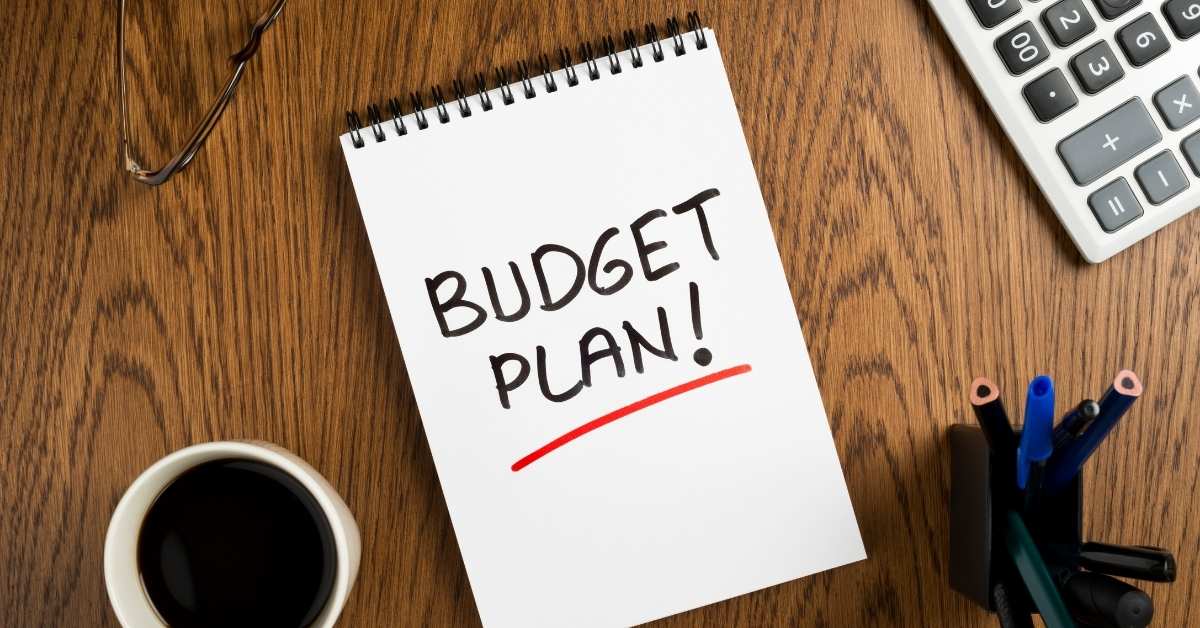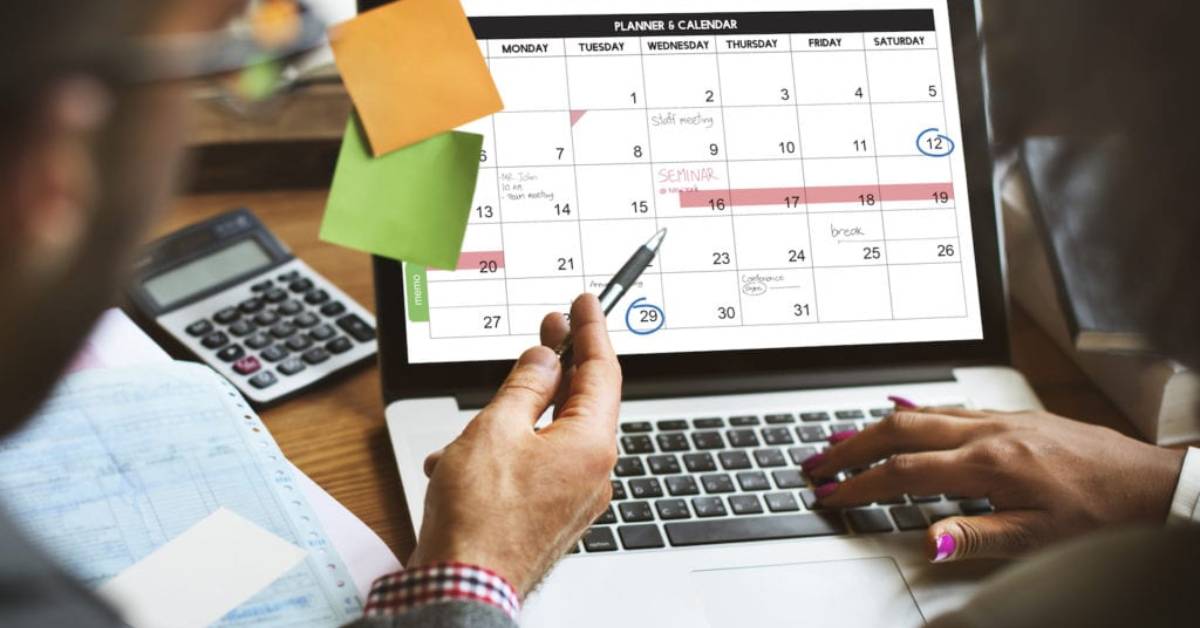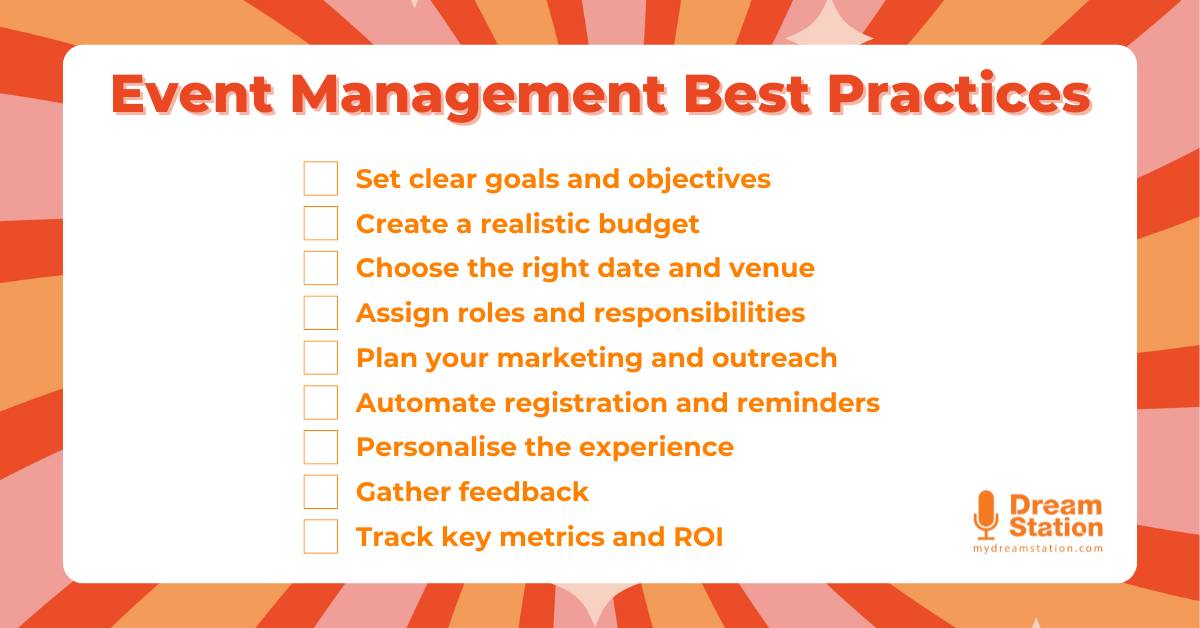
Hong Kong

Vietnam

Philippines

Singapore

Thailand

Japan

UAE

Egypt

China

South korea

Malaysia



Event management best practices are key to planning smooth, impactful events that leave a lasting impression. Whether you’re organising a corporate gathering, product launch, or team retreat, mastering the right strategies can make all the difference. This guide breaks down best practices in event management to help you deliver exceptional experiences every time.
Implementing event management best practices gives your events a strong foundation for success. Here are key reasons why these event management practices matter:

Using best practices is more than just smart planning—it’s a long-term investment in event quality, reputation, and growth.
Planning a successful event takes more than creativity—it requires structure, strategy, and consistency. By applying event management best practices, you can avoid common pitfalls and ensure every detail is thoughtfully executed. Below are the essential planning principles that form the foundation of a smooth, goal-driven event.
Setting clear goals is the first and most critical step in effective event planning. Your objectives should align with broader business outcomes—whether that’s generating leads, boosting brand visibility, or strengthening client relationships. Without defined goals, it’s difficult to measure success or guide key decisions during the planning process.
Start by asking these fundamental questions:

Once you’ve identified general goals, refine them using the SMART framework—Specific, Measurable, Achievable, Relevant, and Time-bound. For example, instead of saying “increase awareness,” aim for “grow event website traffic by 20% within one month.”
Establishing measurable objectives gives your team clarity, helps track progress, and ultimately demonstrates the true value of your event.
An accurate and well-planned budget is essential to keeping your event financially on track. It ensures that your team can allocate resources wisely, avoid overspending, and respond to unexpected costs without compromising the experience. Starting your budget early also allows time to compare quotes and make cost-effective decisions.
When building your budget, remember to account for all major categories:

Always include a buffer (typically 10–15%) to cover unexpected expenses. A comprehensive budget gives you confidence, control, and flexibility throughout the planning process.
Selecting the right date is a critical decision that can directly impact your event’s turnout and overall success. Strategic timing allows you to avoid scheduling conflicts, maximise attendance, and give yourself enough time to plan and promote effectively.
Here are key considerations when choosing an event date:

Choosing your event date carefully isn’t just about convenience—it’s a strategic step that can greatly influence attendance and engagement.
Behind every successful event is a well-structured and collaborative team. Assigning the right people to the right roles helps ensure every detail is handled with care and accountability. A strong planning team improves coordination, decision-making, and overall event execution.
Consider filling these key roles in your team:

Clearly define each team member’s responsibilities and maintain regular check-ins to keep everyone aligned. A capable, collaborative team is the backbone of a well-executed event.
Your event venue plays a central role in shaping the experience for every guest. It influences the atmosphere, logistics, and flow of your programme. Choosing the right location requires careful evaluation—not just of space, but of services, accessibility, and suitability for your goals.
Here are key factors to consider when selecting a venue:

Selecting your venue with intention ensures your event runs smoothly, looks professional, and provides a positive experience for everyone involved. Take time to compare options before making your final decision.
A master event plan acts as your central roadmap, helping you stay organised and ensuring every task is accounted for. It brings all planning elements together into one cohesive document, guiding your team from initial setup to post-event wrap-up.
Key components to include in your master plan:

Treat your master plan as a living document—review and update it regularly to reflect progress and changes. A clear, actionable plan keeps your team aligned and your event running smoothly from start to finish.
A smooth, hassle-free registration process sets the tone for the entire event experience. Automating registration reduces manual admin tasks, minimises errors, and improves attendee satisfaction. With the right tools, you can manage sign-ups, payments, and check-ins all in one streamlined system.
Here are practical ways to automate and optimise registration:

By automating registration, you not only save time and effort but also create a more seamless, professional experience for your guests right from the start.
Delivering a memorable attendee experience is more than just good hospitality—it’s about creating meaningful, personalised interactions from start to finish. A positive journey increases satisfaction, strengthens engagement, and encourages future attendance.
Here are key ways to enhance the attendee experience:

Prioritising the attendee journey turns a good event into a great one. When guests feel informed, included, and valued, your event leaves a lasting impression that builds long-term loyalty.
Measuring return on investment (ROI) helps you evaluate whether your event achieved its intended goals. It also provides insights to refine future planning and demonstrate value to stakeholders. ROI isn’t just about money—it’s about outcomes, engagement, and long-term impact.
To accurately track event ROI, focus on these key actions:

By following these essential event management best practices, you can create well-structured, engaging events that deliver real results. From setting clear goals to tracking ROI, each step plays a vital role in ensuring your event runs smoothly and leaves a lasting impact on your audience.
Need a quick way to stay on track while planning your next event? This handy checklist covers the core event management best practices you should always follow. It’s designed to help you keep sight of key priorities, avoid common mistakes, and stay organised from start to finish—no matter the event type or scale.
Whether you’re planning a conference, team retreat, or product launch, having a clear overview of essential steps can make all the difference. Use this checklist as a quick reference to ensure nothing slips through the cracks during your planning process.

Save or print the checklist and keep it close as you move through each planning stage. With these event planning best practices at your fingertips, you’ll be better equipped to deliver seamless, impactful experiences every time.
Applying the right event management best practices helps you plan smarter, work more efficiently, and create experiences that truly resonate. From setting clear goals to prioritising the attendee journey, each step contributes to the success of your event—both in the moment and long after it ends.
If you’re looking to elevate your next event with expert support, let Dream Station be your trusted partner. Our experienced team specialises in creating seamless, impactful events tailored to your goals. Get in touch today to find out how our event management service can turn your vision into a memorable experience.

OUR GLOBAL PRESENCE
